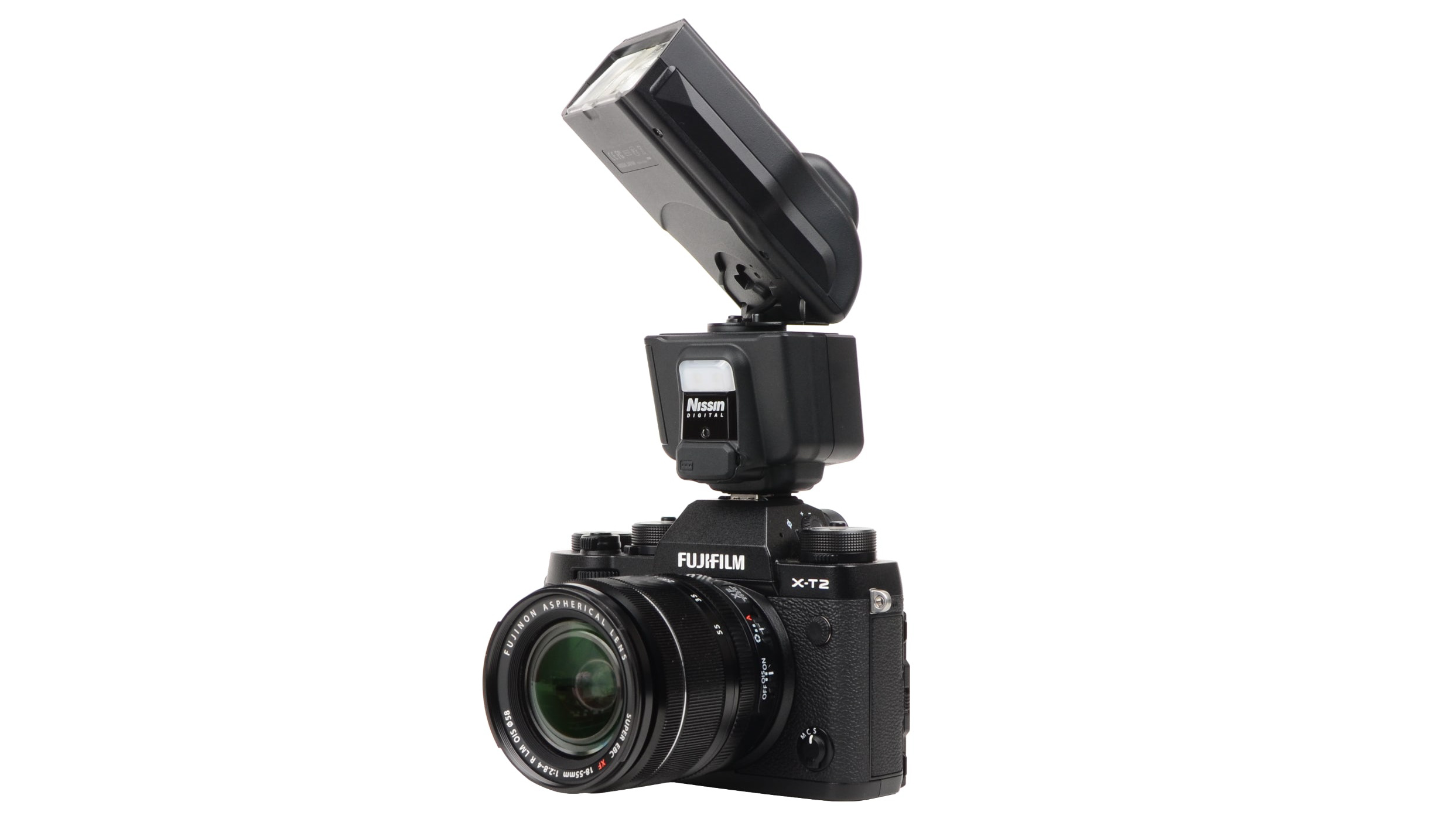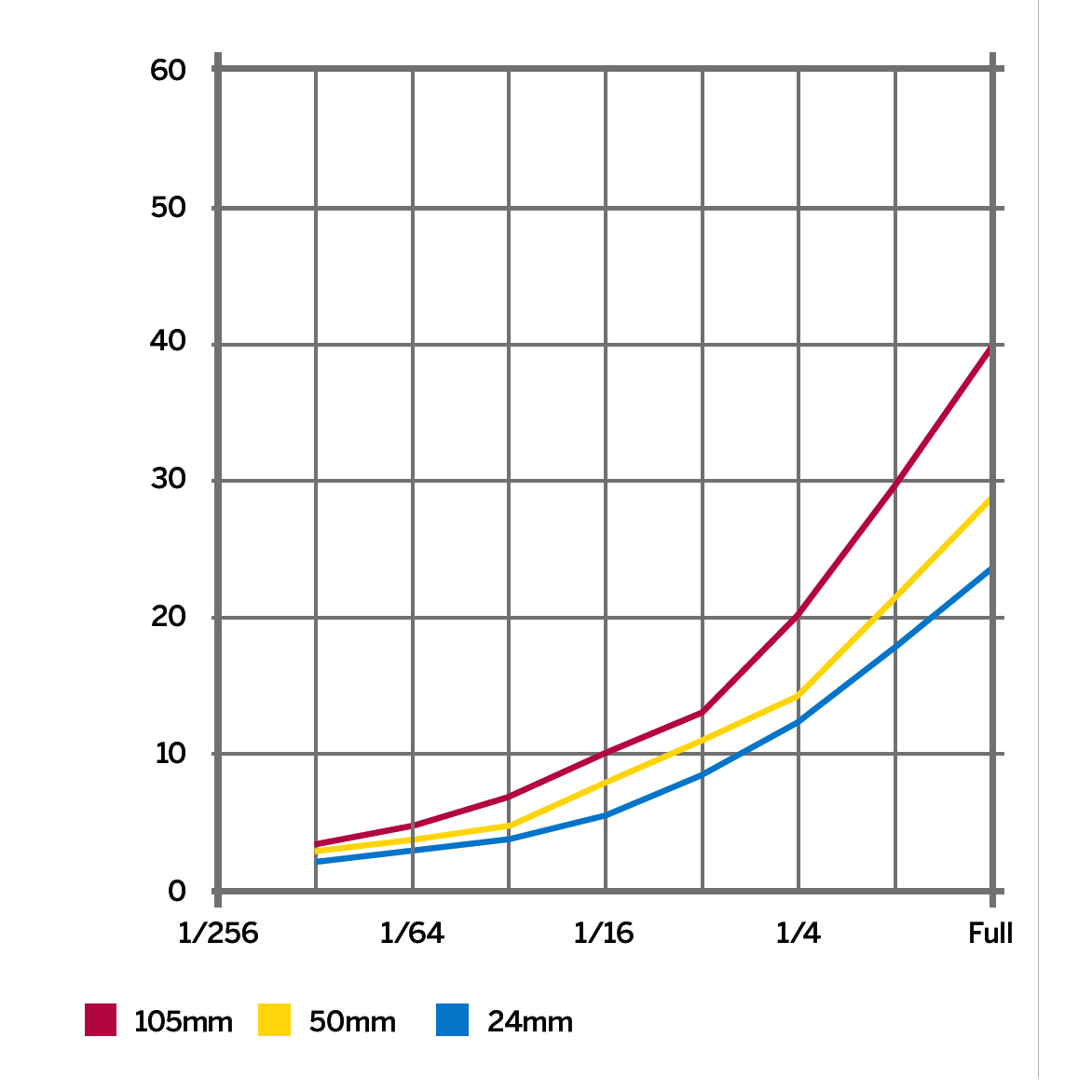
There are many small, lightweight flashguns on the market that arguably look more at home on mirrorless cameras than they do on chunky DSLRs. However, most only have a meagre maximum power output, rudimentary onboard controls, and often lack an LCD screen around the back. This Nissin proves that you really can squeeze a quart into a pint pot, with its powerful Gn 60 rating, 24-200mm motorized zoom head, and an elegant user interface based around a graphical color screen.
Specifications
Dedication: Canon, Nikon, Sony, Fujifilm, Micro Four Thirds (Olympus/Panasonic)
Gn, ISO 100, max zoom (m / ft): Gn 60 / 131
Bounce range: 0 to 90 degrees
Swivel, left / right: 180 / 180 degrees
Zoom Range: 24-200mm
Manual power settings: 1/1 to 1/256
AF-assist beam: Yes
Wireless: Slave IR (optional RF)
Additional flash modes: HSS, RC
Dimensions (W x H x D): 73x112x98mm
Weight (excl batteries): 300g / 11oz
Key features
The bounce facility has a 0-90° tilt and full 180° swivel in both left and right directions. Despite its small build, the Nissin even manages to shoehorn in an LED light. It’s nowhere near as powerful as the secondary flash module featured in some top-end flashguns but is better suited to close-up video capture and macro photography.
Both infrared and RF wireless slave triggering are available, the latter working well with Nissin’s elegant Commander Air 10s RF trigger. The trigger is available separately for around £149/$130 respectively, or you can buy an i60 kit that includes a trigger for around £379/$459. Both the Nissin flashgun and trigger are available in dedicated Canon, Nikon, Sony, Fujifilm, and Micro Four Thirds options.
Performance

In our tests, the little Nissin beat every other flashgun in the group for maximum power output. And if you want really subtle lighting, it can do that too, being the only flashgun on test with a power range that goes all the way down to 1/256.
We experienced a slight, but consistent amount of underexposure during TTL flash shooting, equating to about a third of an f/stop, but that’s easily corrected with a little positive flash exposure compensation. Furthermore, despite its more powerful maximum output, recycling speed is marginally quicker than with the Nikon, at 2.6 or 4.1 seconds after a full-power flash with NiMH or alkaline batteries respectively.
Lab tests



Verdict

Proving that bigger isn’t always better, this Nissin is a refreshingly compact flashgun with real power. The i60A covers all the bases and puts them into an unusually compact package. We love how handling is enhanced by the graphical user interface, based around a color LCD screen. What's more it is great value at the price and the kit version that includes a wireless RF trigger is also appealing.
How we test flashguns
For flashguns, we check features, such as flash exposure compensation, motorized zoom heads and advanced flash modes. To test power output, we use a Sekonic flash meter placed 1m from each flashgun. We test the range of manual power settings in one-stop increments – with a sensitivity of ISO 100, the figures correlate with the Gn (Guide number), a common measurement of flash power. The results are checked against shots of a standard grey card and the camera’s histogram display. We also check the accuracy and consistency of TTL flash metering, and the time taken to return to readiness after a full-power flash.







